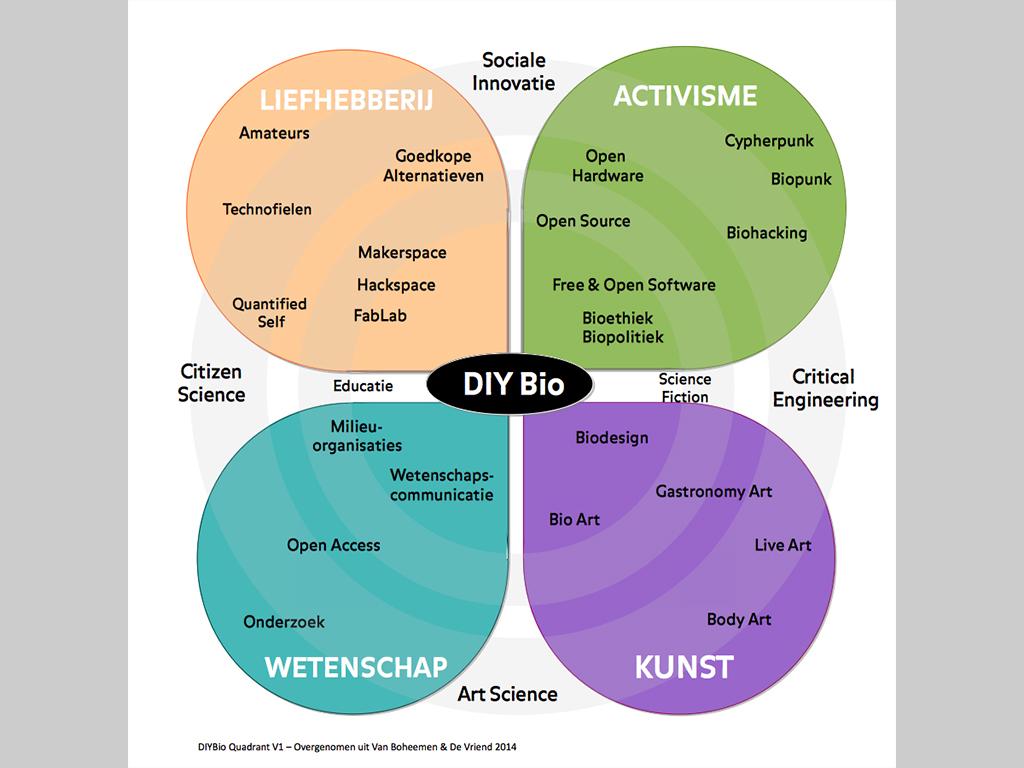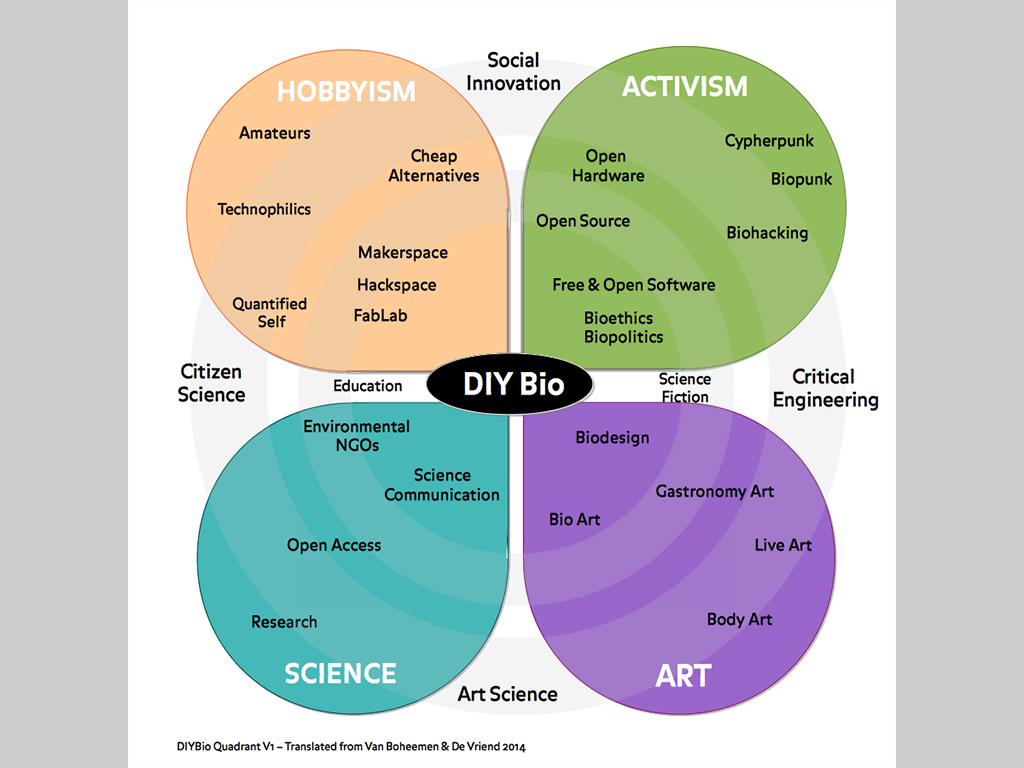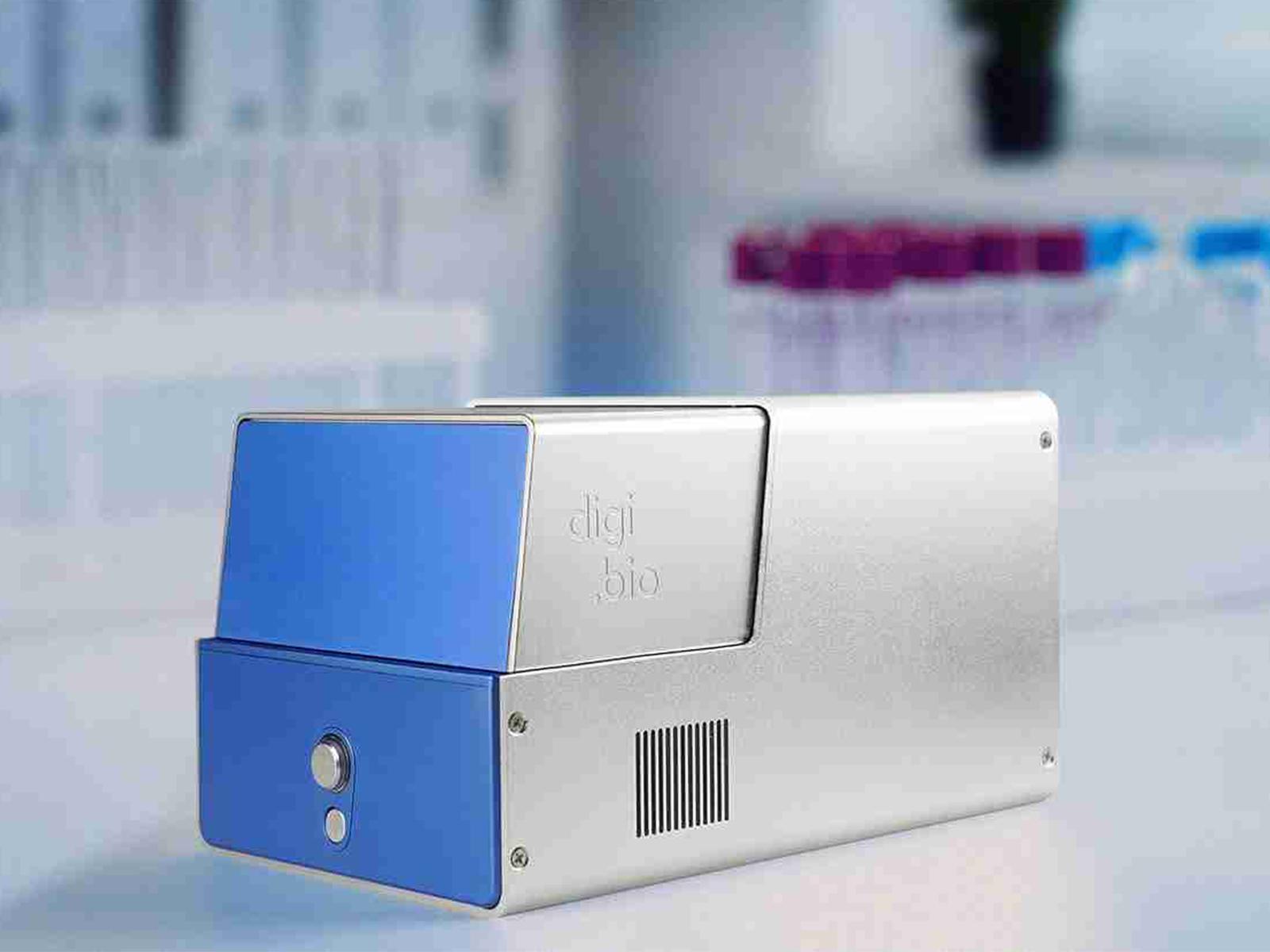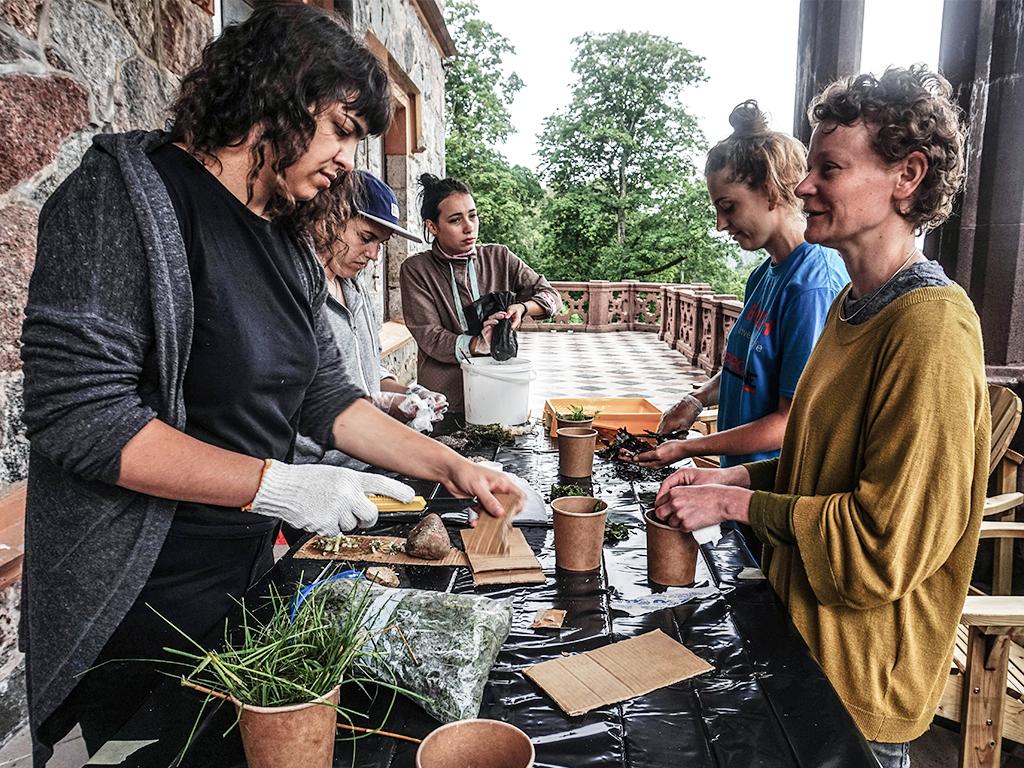The definition of Do-It-Yourself Bio (DIY Bio) is not trivial. So when the Dutch governmental advisory committee on genetic modification asked us to write a report on DIY Bio in The Netherlands we were faced with the challenge to create a definition beyond the often portrayed “I don't know what it is, but recognize it when I see it” argument.
In the recently published report, written in cooperation with LISconsult, we argue that DIY Bio activities can roughly be divided into four quadrants: hobbyism, activism, art and science. The underlying thought is that DIY Bio does not consist of entirely new activities, rather it's a dynamic composition of already existing phenomena.
This might be the root cause of confusions between DIY Bio and Biohacking, Biopunk, Biomaking, Quantified Self, Biodesign, Bioart, etcetera. The truth is that all of these activities may contain DIY Bio activities and vice versa, but to a degree that varies from one manifestation to another. For example, DIY Bio's characteristic informal knowledge transfer communities might result in artistic artifacts such as Rüdiger Trojok's DIY Genegun, making it Bioart and DIY Bio at the same time.
In our research we present an attempt to create an overview of terms that are often associated with DIY Bio in a comprehensive and visual manner. The image below contains the four quadrants: the distance between the words serves as an indication of similarity. So the closer to the middle, the more likely that a certain activity includes DIY Bio practices.
A full description of the reasoning behind this image can be found in the final report, for those of you that are blessed with an understanding of the Dutch language.



